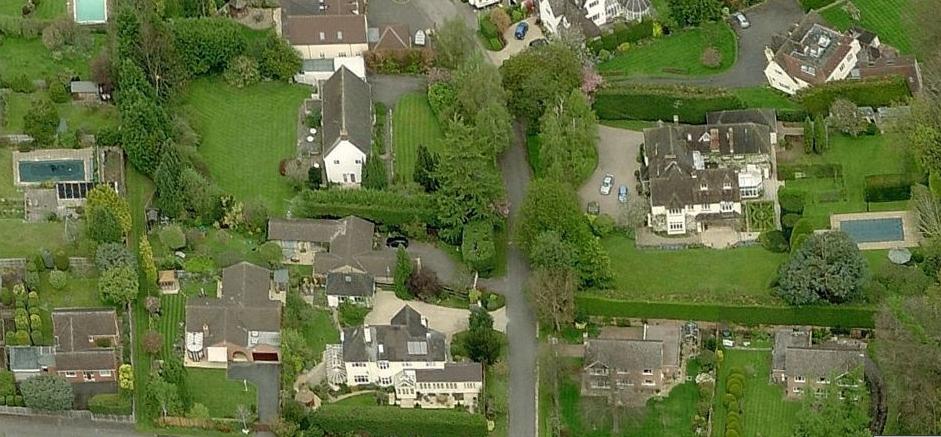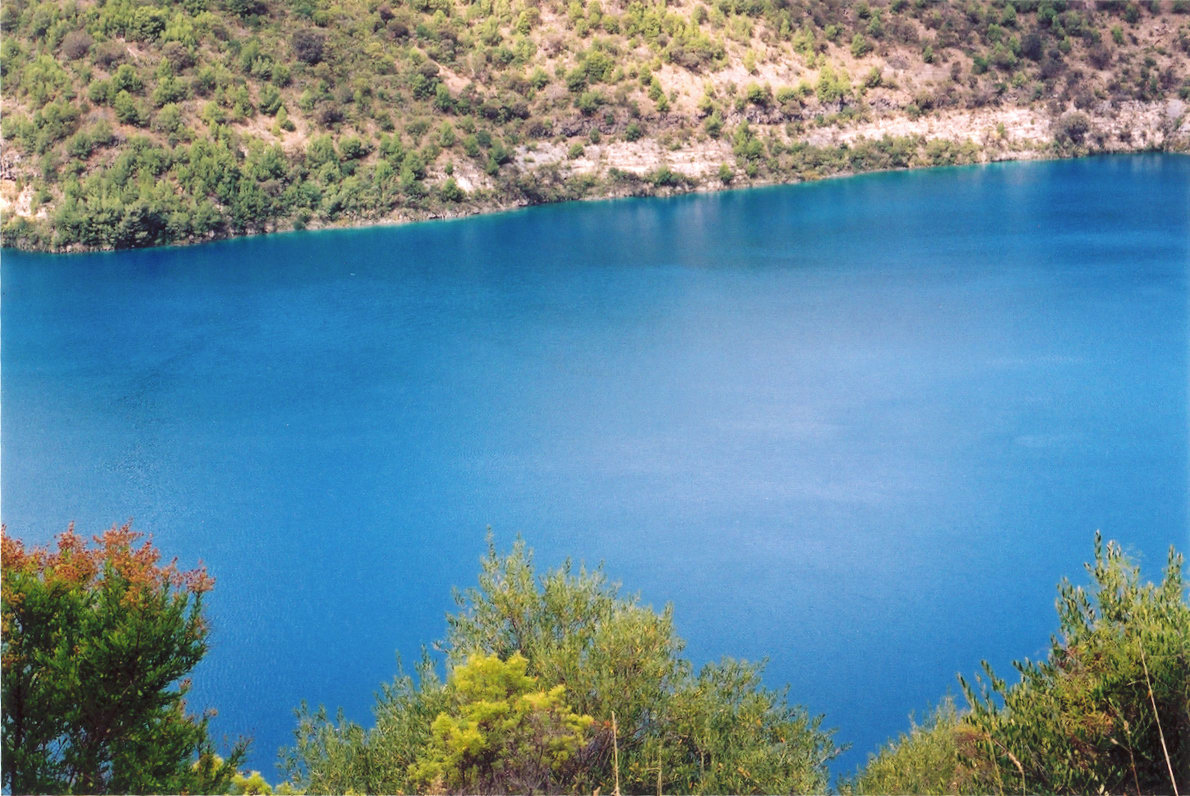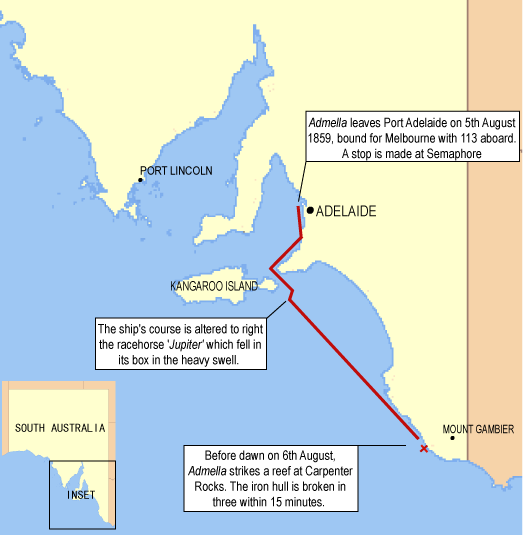|
Adam Lindsay Gordon
Adam Lindsay Gordon (19 October 1833 – 24 June 1870) was a British-Australian poet, horseman, police officer and politician. He was the first Australian poet to gain considerable recognition overseas, and according to his contemporary, writer Marcus Clarke, Gordon's work represented "the beginnings of a national school of Australian poetry". Early life Though commonly cited as having been born in Fayal in the Azores, where Captain Gordon had brought his wife for the sake of her health, Gordon's birthplace was the small English village of Charlton Kings near Cheltenham, where he was baptised. He was the son of Captain Adam Durnford Gordon and Harriet Gordon, his first cousin, both of whom were descended from Adam Gordon of Auchindoun, of the ballad "Edom o Gordon". Captain Gordon had retired from the Bengal cavalry and taught Hindustani. His mother's family had owned slaves in the British West Indies until the abolition of slavery in the 1830s, and had received significant ... [...More Info...] [...Related Items...] OR: [Wikipedia] [Google] [Baidu] |
Charlton Kings
Charlton Kings is a contiguous village adjoining Cheltenham in Gloucestershire, England. The area constitutes a civil parish In England, a civil parish is a type of administrative parish used for local government. It is a territorial designation which is the lowest tier of local government below districts and counties, or their combined form, the unitary authority ... of 10,396 residents (2011). Landscape Charlton Kings is situated in the west foothills of the north-south Cotswolds, which is an Area of Outstanding Natural Beauty. Its surroundings are protected by nature conservation legislation and designations. Lineover Wood SSSI is located on the Cotswold District side of the eastern boundary. Charlton Kings Common and Leckhampton Hill are also designated as SSSIs by Natural England. The River Chelt enters the area from the east. The Cotswold Way, Cotswold Way National Trail is on Charlton Kings's eastern boundary and runs alongside Dowdeswell Reservoir and Wood ... [...More Info...] [...Related Items...] OR: [Wikipedia] [Google] [Baidu] |
Mounted Police
Mounted police are police who patrol on horseback or camelback. Their day-to-day function is typically picturesque or ceremonial, but they are also employed in crowd control because of their mobile mass and height advantage and increasingly in the UK for crime prevention and high visibility policing roles. The added height and visibility that the horses give their riders allows officers to observe a wider area, and it also allows people in the wider area to see the officers, which helps deter crime and helps people find officers when they need them. When employed for crowd control, there is a risk that some people may be trampled (resulting in injuries or death). Due to this, authoritarian regimes often use mounted police to supress protests, as the public generally does not view these "accidental" deaths as resulting from a deliberate use of deadly force. In at least one case this has resulted in the police officer riding the horse (that caused the injury) to be sued. Mounted po ... [...More Info...] [...Related Items...] OR: [Wikipedia] [Google] [Baidu] |
Electoral District Of Victoria
Victoria was an electorate in the South Australian House of Assembly from 1857 until 1902 and from 1915 to 1993. In 1902 the district was merged with Albert to create Victoria and Albert, but was separated again in 1915, electing candidates of both major parties at various times. However, after 1956, it was held by the Liberal and Country League and its successor, the Liberal Party, usually without serious difficulty. It was abolished in 1993 and replaced by the safe Liberal seat of MacKillop. In 1860, the electorate had booths at Mosquito Plains, Mount Gambier, Penola and Robe. In 1865, it added Port MacDonnell, Bordertown, Kingston, South Australia and Wellington, and Naracoorte in 1868. In 1875, Bordertown, Kingston, Naracoorte, Robe and Wellington were transferred to the new electorate of Albert, and the new Victoria consisted of only Millicent, Mount Gambier, Penola, Port MacDonnell and Tarpeena. Booths were added at Beachport (1883), Tantanoola (1884), Furn ... [...More Info...] [...Related Items...] OR: [Wikipedia] [Google] [Baidu] |
South Australian House Of Assembly
The House of Assembly, or lower house, is one of the two chambers of the Parliament of South Australia. The other is the Legislative Council. It sits in Parliament House in the state capital, Adelaide. Overview The House of Assembly was created in 1857, when South Australia attained self-government. The development of an elected legislature — although only men could vote — marked a significant change from the prior system, where legislative power was in the hands of the Governor and the Legislative Council, which was appointed by the Governor. In 1895, the House of Assembly granted women the right to vote and stand for election to the legislature. South Australia was the second place in the world to do so after New Zealand in 1893, and the first to allow women to stand for election. (The first woman candidates for the South Australia Assembly ran in 1918 general election, in Adelaide and Sturt.) From 1857 to 1933, the House of Assembly was elected from multi-member dist ... [...More Info...] [...Related Items...] OR: [Wikipedia] [Google] [Baidu] |
Blue Lake (South Australia)
Blue Lake / Warwar (The Blue Lake) is a large, monomictic, crater lake located in a dormant volcanic maar associated with the Mount Gambier maar complex. The lake is situated near in the Limestone Coast region of South Australia, and is one of four volcanic crater lakes originally on Mount Gambier maar. Of the four lakes, only two remain, the other one being Valley Lake / Ketla Malpi; the other two, Leg of Mutton Lake / Yatton Loo and Brownes Lake / Kroweratwari, have dried up as the water table has dropped. History Conflicting dates have been estimated for the last eruption of the volcano: of 4,300 years ago, of 28,000 years ago, and a little before 6,000 years ago. If the youngest date is correct, this could be the most recent volcanic eruption on the Australian mainland. The Boandik (or Bungandidj) people occupied the area before the colonisation of South Australia. Description Blue Lake / Warwar is one of four lakes in the extinct volcano complex. Sites of ... [...More Info...] [...Related Items...] OR: [Wikipedia] [Google] [Baidu] |
Port MacDonnell, South Australia
Port MacDonnell, originally known as ''Ngaranga''Christina Smith, The Booandik Tribe of South Australian Aborigines: A Sketch of Their Habits, Customs, Legends, and Language', Spiller, 1880 is the southernmost town in South Australia. The small port located in the Limestone Coast region about southeast of Adelaide and south of Mount Gambier in the District Council of Grant local government area. The 2016 Australian census which was conducted in August 2016 reports that the locality of Port MacDonnell had a population of 847 of which 671 lived in its town centre. Once a busy shipping port, the town now relies heavily on its fishing and summer tourism industries, particularly rock lobster harvest industry, proclaiming itself "Australia's Southern Rock Lobster Capital". History The area was originally inhabited by the Bungandidj Aboriginal people, who referred to it as ''Ngaranga'', possibly meaning "noisy" or "caves". Their oral history recorded that the dry land previously ... [...More Info...] [...Related Items...] OR: [Wikipedia] [Google] [Baidu] |
The Mail (Adelaide)
The ''Sunday Mail'' (originally titled ''The Mail'') is an Adelaide newspaper first published on 4 May 1912 by Clarence Moody. Through much of the 20th century, '' The Advertiser'' was Adelaide's morning broadsheet, '' The News'' the afternoon tabloid, ''The Sunday Mail'' a vehicle for covering weekend sport, and ''Messenger Newspapers'' covering community news. "Sunday Mail" is a business name of Advertiser Newspapers Pty Ltd, a private company that is part of News Corp Australia, which since 2004 has been a component of the U.S. multinational mass media company, News Corp. History ''Mail'' In 1912, Clarence Moody initially set up three newspapers – the ''Sporting Mail'' (1912-1914), ''Saturday Mail'' (1912-1917), and the ''Mail''. The first two titles lasted only a few years, and the ''Mail'' itself went into liquidation in late 1914. Ownership passed briefly to George Annells and Frank Stone, and then to Herbert Syme. In May 1923 News Limited purchased the ''Mail'' an ... [...More Info...] [...Related Items...] OR: [Wikipedia] [Google] [Baidu] |
Admella
SS ''Admella'' was an Australian passenger steamship that was shipwrecked on a submerged reef off the coast of Carpenter Rocks, south west of Mount Gambier South Australia, in the early hours of Saturday 6 August 1859. Survivors clung to the wreck for over a week and many people took days to die as they glimpsed the land from the sea and watched as one rescue attempt after another failed. With the loss of 89 lives, mostly due to cold and exposure, it is one of the worst maritime disasters in Australian history. ''Admella'' disaster remains the greatest loss of life in the history of European settlement in South Australia. Of the 113 on board 24 survived, including only one woman, Bridget Ledwith. Of the 89 dead, 14 were children. The 150th anniversary of the disaster was marked in August 2009 by events across the south east of South Australia and at Portland, Victoria. Description and career SS ''Admella'' (so named for her circuit Adelaide, Melbourne, Launceston) was built by L ... [...More Info...] [...Related Items...] OR: [Wikipedia] [Google] [Baidu] |
SS Admella
SS ''Admella'' was an Australian passenger steamship that was shipwrecked on a submerged reef off the coast of Carpenter Rocks, south west of Mount Gambier South Australia, in the early hours of Saturday 6 August 1859. Survivors clung to the wreck for over a week and many people took days to die as they glimpsed the land from the sea and watched as one rescue attempt after another failed. With the loss of 89 lives, mostly due to cold and exposure, it is one of the worst maritime disasters in Australian history. ''Admella'' disaster remains the greatest loss of life in the history of European settlement in South Australia. Of the 113 on board 24 survived, including only one woman, Bridget Ledwith. Of the 89 dead, 14 were children. The 150th anniversary of the disaster was marked in August 2009 by events across the south east of South Australia and at Portland, Victoria. Description and career SS ''Admella'' (so named for her circuit Adelaide, Melbourne, Launceston) was built by L ... [...More Info...] [...Related Items...] OR: [Wikipedia] [Google] [Baidu] |
Julian Tenison Woods
Julian Edmund Tenison-Woods (15 November 18327 October 1889), commonly referred to as Father Woods, was an English Catholic priest and geologist who served in Australia.D. H. BorchardtTenison-Woods, Julian Edmund (1832–1889) ''Australian Dictionary of Biography'', Volume 6, MUP, 1976, pp. 254–255. Retrieved 23 March 2010. With Mary MacKillop, he co-founded the Sisters of St Joseph of the Sacred Heart at Penola in 1866. Early life Tenison-Woods was born in London, the sixth son (of eleven children) of James Dominick Woods, A list of corrections by Father Woods' brother a sub-editor of ''The Times'', and his wife, Henrietta Maria Saint-Eloy Tenison, daughter of the Rev. Joseph Tenison, rector of Donoughmore, County Wicklow and of the same family as Archbishop Thomas Tenison. She became a Catholic. Julian Tenison-Woods was baptised by the Rev. John White of the Belgian Chapel, Southwark, and confirmed by Cardinal Wiseman, at that time Vicar-Apostolic of the London District. ... [...More Info...] [...Related Items...] OR: [Wikipedia] [Google] [Baidu] |
Alexander Tolmer
Alexander Tolmer (1815 – 7 March 1890) was a South Australian police officer and Police Commissioner. He was educated at Plymouth, Rouen, Maidstone and Hawkhurst. He migrated to South Australia in 1840 where he was made sub-inspector by Governor George Gawler. In August 1840, Tolmer was part of the punitive expedition to the Coorong after Aborigines massacred 25 shipwreck survivors from the ship ''Maria'', which had been travelling from Port Adelaide to Hobart. He was involved in the 1842 search for Charles Christian Dutton and droving party, believed to have been similarly attacked on their way from Port Lincoln to Adelaide, but no trace of the party was ever found. Police Inspector Alexander Tolmer was among the original residents of the newly established village of Norwood, South Australia, in 1847. After several stints of acting in the position, Tolmer was appointed Commissioner of Police on 3 January 1852 25 years later Tolmer was still bitter. replacing George Dashwoo ... [...More Info...] [...Related Items...] OR: [Wikipedia] [Google] [Baidu] |
Penola, South Australia
Penola is a town in the Australian state of South Australia located about southeast of the state capital of Adelaide in the wine growing area known as the Coonawarra. At the , town of Penola had a population of 1,312. It is known as the central location in the life of Mary MacKillop (St. Mary of the Cross), the first Australian to gain Roman Catholic sainthood, in 2010. In 1866 McKillop and a Catholic priest, Julian Tenison-Woods, established a Catholic school in the town. Penola was on the Mount Gambier to Wolseley railway line which opened in 1887, until its closure to freight on 12 April 1995, and then to Limestone Coast Railway tourist passengers on 1 July 2006. History The Aboriginal Australians living in the area when Europeans arrived were the Bindjali people, although this meaning has also been ascribed to Coonawarra by the same source. A different source reports that the Bindjali expression, ''pena oorla'' means "wooden house", which referred to the first pub i ... [...More Info...] [...Related Items...] OR: [Wikipedia] [Google] [Baidu] |


.jpg)




